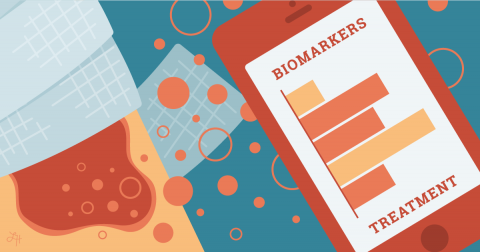
Smartphone technology could predict how well chronic wounds will heal
More than 6.5 million Americans with diabetes are affected by foot ulcers, which are the leading cause of lower extremity amputation. Of those patients who develop a foot ulcer, 6% will be hospitalized and approximately 14–24% will require amputation. Patients with diabetes are at an increased risk of foot ulcers due to several factors, including nerve damage, poor circulation, and trauma.
Wound care for diabetic foot ulcers is aimed at promoting healing to prevent infection. Typical treatment includes lowering blood sugar, dressing and removing dead skin to promote new tissue growth, and taking pressure off the wound. While current diagnostic tests can detect infection, no tests can predict whether the wound will heal.
David A. Brown, MD, PhD, Assistant Professor of Surgery, Division of Plastic, Maxillofacial, and Oral Surgery, has received a grant from the Plastic Surgery Foundation to develop a novel, low-cost, point-of-care test to predict wound healing in collaboration with Dr. Ashutosh Chilkoti from the Department of Biomedical Engineering.
In this study, Dr. Brown and colleagues will evaluate wound fluid specimens collected from patients with diabetic foot ulcers. Biological markers in the fluid, such as markers of inflammation, can help guide clinicians when assessing the severity of a wound. Based on the markers present in the wound, clinicians can then determine whether the wound will heal on its own or require surgery.
Because this test uses smartphone technology, clinicians will be able to rapidly diagnose wound severity at the patient’s bedside rather than sending patient samples off to the lab. Using a smartphone attachment and app, the user-friendly test can rapidly assess a large panel of biomarkers using a low volume of sample for processing, affording faster diagnoses in the clinic.
The grant ultimately aims to develop more personalized therapies to treat chronic wounds, tailored to each patient’s unique immune system. The technology may lead to other point-of-care technologies that will be used to predict outcomes in patients with chronic wounds and to improve treatment.